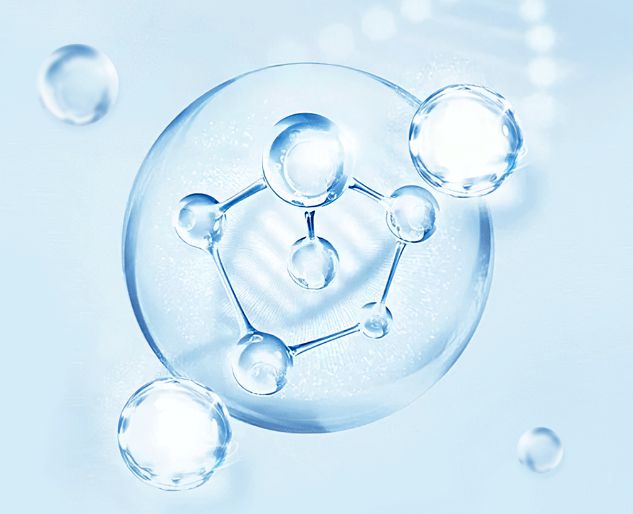In the vast landscape of skincare, hair care, and nutritional supplements, two ingredients have gained significant attention for their potential health benefits: Hydrolyzed Keratin and Chicken Collagen Type 2. Each of these compounds offers unique properties derived from natural sources, catering to distinct aspects of beauty, wellness, and joint health. This comprehensive comparison aims to explore their origins, compositions, benefits, and applications, providing insights into how they can be utilized effectively in various products.
Understanding Hydrolyzed Keratin
Source and Composition:
Hydrolyzed Keratin is a bioactive protein derived from keratin, a fibrous protein found abundantly in hair, nails, and the outer layer of skin. Through a process known as hydrolysis, keratin is broken down into smaller peptides, enhancing its bioavailability and absorption rate. This form of keratin retains essential amino acids and structural components vital for its intended benefits in beauty and skincare.
Benefits and Functions:
- Hair Health: One of the primary benefits of Hydrolyzed Keratin is its ability to strengthen and improve the appearance of hair. By replenishing keratin levels in the hair shaft, it enhances elasticity, reduces breakage, and restores luster and shine.
- Nail Strength: Hydrolyzed Keratin also supports nail health by fortifying the nail bed and cuticles. Regular supplementation or topical application can help reduce brittleness and promote stronger, healthier nails.
- Skin Repair: In skincare, keratin peptides contribute to skin repair and regeneration. They support the skin’s barrier function, helping to retain moisture and improve overall texture and tone.
Applications:
Hydrolyzed Keratin finds extensive use in cosmetic formulations, including:
– Hair Care Products: Shampoos, conditioners, and treatments designed to repair and strengthen hair.
– Nail Treatments: Nail polishes, serums, and creams aimed at improving nail health and appearance.
– Skincare Solutions: Moisturizers, serums, and anti-aging formulations that enhance skin elasticity and hydration.
Exploring Chicken Collagen Type 2
Source and Composition:
is derived from the cartilage and bones of chickens, specifically targeting collagen type II, a major component of joint cartilage. Collagen peptides in Chicken Collagen Type 2 are crucial for maintaining joint health and flexibility, as well as supporting overall mobility.
Benefits and Functions:
- Joint Health: The primary benefit of Chicken Collagen Type 2 lies in its ability to support joint health and alleviate symptoms of osteoarthritis and joint pain. It helps maintain the structural integrity of cartilage, reducing friction between bones and promoting smoother joint function.
- Anti-Inflammatory Properties: Collagen peptides from Chicken Collagen Type 2 possess anti-inflammatory properties, which can help reduce swelling and stiffness associated with joint conditions.
- Connective Tissue Support: Beyond joints, collagen type II supports the health of other connective tissues, including ligaments, tendons, and skin.
Applications:
Chicken Collagen Type 2 is predominantly used in:
– Dietary Supplements: Capsules, powders, and liquid formulations aimed at promoting joint health and flexibility.
– Functional Foods: Beverages, snacks, and protein bars fortified with collagen peptides for convenient consumption.
– Medical Applications: Often recommended by healthcare providers to manage joint-related disorders and promote recovery after joint surgeries.
Comparative Analysis: Hydrolyzed Keratin vs. Chicken Collagen Type 2
- Source and Composition:
– Hydrolyzed Keratin: Derived from keratin, primarily sourced from animal by-products like wool, feathers, or horns.
– Chicken Collagen Type 2: Derived from chicken cartilage and bones, focusing on collagen type II specifically found in joint cartilage.
- Benefits and Uses:
– Hydrolyzed Keratin:
– Beauty and Skincare: Improves hair strength, reduces nail brittleness, and enhances skin elasticity and texture.
– Cosmetic Applications: Widely used in hair care products, nail treatments, and skincare formulations.
– Chicken Collagen Type 2:
– Joint Health: Supports joint function, reduces inflammation, and alleviates symptoms of osteoarthritis.
– Health Supplements: Popular in dietary supplements and functional foods designed to improve joint flexibility and mobility.
- Bioavailability and Absorption:
– Both Hydrolyzed Keratin and Chicken Collagen Type 2 undergo hydrolysis to enhance their bioavailability and absorption in the body. This process breaks down proteins into smaller peptides, making them easier for the body to utilize effectively.
- Applications and Market Trends:
– Hydrolyzed Keratin: Dominates the beauty and cosmetic industry, with a wide range of products aimed at hair, nail, and skincare.
– Chicken Collagen Type 2: Gaining popularity in the dietary supplement market, particularly among aging populations and individuals seeking joint health support.
Conclusion
In conclusion, Hydrolyzed Keratin and Chicken Collagen Type 2 offer distinct benefits and applications within the realms of beauty, skincare, and joint health. Hydrolyzed Keratin excels in enhancing hair strength, nail health, and skin texture, making it a staple in cosmetic formulations. On the other hand, Chicken Collagen Type 2 is renowned for its efficacy in supporting joint function, reducing inflammation, and promoting overall mobility, thus becoming increasingly popular in dietary supplements and functional foods.
Understanding these differences allows consumers and professionals to make informed choices based on their specific health and wellness needs. Whether seeking to improve hair and nail health or support joint flexibility and mobility, these natural ingredients provide valuable solutions backed by scientific research and consumer demand. As research and development continue to expand, these ingredients will likely play even more significant roles in promoting holistic health and well-being across diverse demographics.

